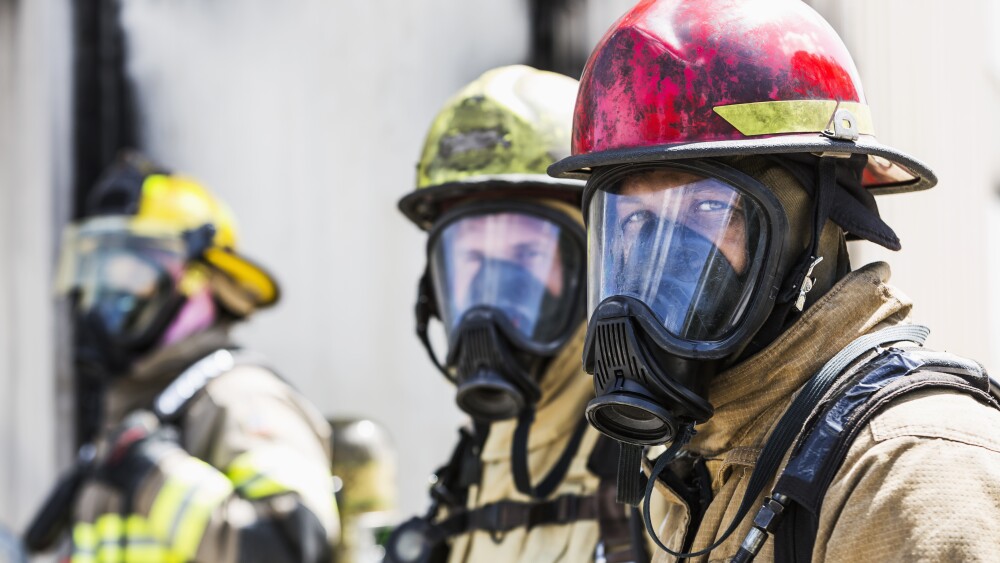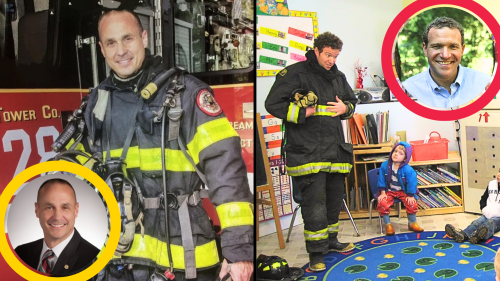Who are you as a firefighter or an officer? Are you committed to the craft? Committed to growing and advancing with research, study and training using a progressive mindset? Are you a true servant of both the profession and the public?
It is easy to get caught up in the hype that’s associated with the fire service. Movies, TV shows and social media create an image of brave heroes running into burning building after burning building, making save after save, and while that can and does happen from time to time, these dramatic and mostly inaccurate portrayals of firefighters can sometimes create an arrogance that bleeds into our identity as public servants. Yes, we are asked to do heroic things during our community’s time of need, just don’t get caught up in the hype.
The words matter
The fire service has many long-standing traditions that are centered around honor, integrity and service. Chief Alan Brunacini (“Bruno”) introduced us to Mrs. Smith and evolved the fire service through his commitment to providing exceptional customer service to the citizens of Phoenix. His stories of how Phoenix firefighters went above the call of duty to assist citizens by mowing the lawn after a medical emergency compelled the rest of the fire service to open our eyes to the full meaning of the word service.
Fire service slogans like “For them” and “Mrs. Smith” convey the service we provide our communities, but do they fully encapsulate what it means to be a humble public servant? How, as leaders of today’s fire service, do we instill and reinforce these behaviors in the newest generation of firefighters, even some of our more veteran members who may not have dialed in the “humble” element?
Let’s start with the humility piece. Humble is defined as, “not proud or arrogant, but rather modest.” My personal definition: A person is humble when their actions outperform their image, and they put the needs of others above their own.
Now let’s consider the term public servant. To me, a public servant recognizes that they (in our case as firefighters) either volunteer or are employed by a fire department, but without the public to provide the revenue through their taxes, none of us would be needed. Beyond recognizing that we all work for the public, we must also identify that we serve the public. The difference between working for the public and serving the public is in the attitude, culture, performance and compassion in which we serve.
Build the culture
As we know, culture is king, and an organization’s culture will trump solo or individual performance.
Your department culture will determine how your firefighters view and service the community. So, how can we build a Humble Public Servant Culture in our organizations?
Setting the standard of service starts with identifying behavioral traits in service-minded people. In his book “Ideal Team Player,” Patrick Lencioni identified three key traits of service-oriented individuals – humble, hungry and everyday street smart. The alignment of Lencioni’s principles on what makes a great teammate match with the principles of what makes an ideal humble public servant.
- To be humble in success or performance is the foundation of a dedicated public servant.
- Hungry is not about the firehouse kitchen table, although there are a lot of good that happens at the table, but rather it’s about your desire to learn more, perform better and strive to serve your fellow firefighters and community at a higher level.
- Street smart is your ability to interact, read the situation, and act accordingly for the situation.
Reassessing the traits that you seek in your volunteers or new hires is critical in creating a humble public servant mindset or culture at your department.
In addition to identifying these traits in new members, it is important to assess the traits in your current members. As an exercise, have your team do informal assessments of themselves. Have them consider their own levels of humility, hunger and street smarts. Then have their first-line supervisors assess them on the same traits, but add one final set of questions: Are they coachable? Can they grow and learn? You will be surprised how impactful conducting assessments will be for you in growing your culture.
It’s also vital to remember the critical role of leadership in growing humble public servants. How your leadership team acts around the fire station is a direct correlation with how they act in public, on and off duty. Like Bruno used to say, “You can’t have a three-ring circus in the station and then expect to perform like a surgeon on scene.” Leadership matters.
A word on ego
Keep in mind that ego isn’t always a bad trait. We need some bravado to maintain the confidence to go into dangerous incidents. We are asked to engage and solve problems during the public’s worst days. There is an edge of confidence that is needed, and we foster this confidence through training at a high standard. These are good things! Balance is key, though.
When our ego runs away from us, we need a “designated adult” supervisor or chief to remind us about the importance of being a public servant. There are incidents every day that can humble us. As leaders, it is our job to maintain the balance on ego and humility. Being present as a leader will provide insight as to when a member’s ego needs to be checked. Like Herb Brooks, the 1980 Olympic hockey team coach, said, “If the name on the back of your jersey is more important than the name on the front, then get off the ice.” Same goes for the fireground.
Final thoughts
Embracing the humble public service mindset is critical for the future success of the fire service. It takes work to be a humble public servant, adjusting your mindset and living the vision of the men and women who laid the groundwork for today’s fire service. Remember, what we do matters, and acting on the oath that we swore to uphold is important. That oath is to serve our communities. Are you truly serving or are you just living the lifestyle? Just like Herb Brooks said to the 1980 Olympic team, “If the name on the back of your jersey is more important than the front of the jersey, you are on the wrong team.” We must as a fire service remember that your citizens come before us as individuals, and if it’s truly about them, then we will focus on attracting members with the traits necessary to build dedicated humble public servants.
WATCH | Gordon Graham on public safety professionalism




